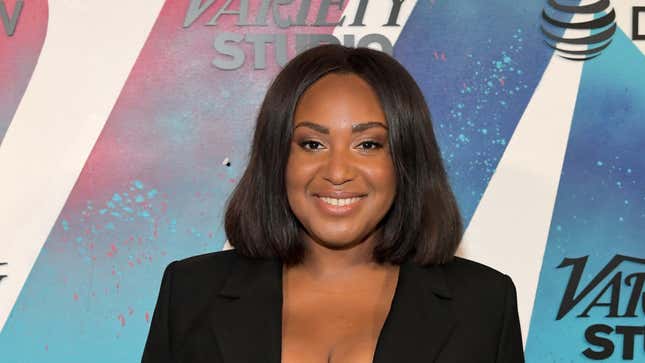Director Stella Meghie On Writing Introverted Extroverts and Her Film The Weekend
EntertainmentMovies

In Stella Meghie’s film The Weekend, Sasheer Zamata plays the loose-lipped comedian Zadie, who is subjected to a picturesque weekend at her mother’s bed and breakfast along with her ex-boyfriend and current best friend Bradford (Tone Bell.) Everything’s cool, except of course the fact that Bradford’s gorgeous, put-together new girlfriend Margot (DeWanda Wise) is also along for the ride. As the trio frolics along the pretty California vineyards that surround the house, along with a new visitor Aubrey (Y’lan Noel), the sunny getaway turns sour when Zadie and Bradford bicker over leftover feelings for one another.
The Weekend draws a lot of its comedy from its awkward scenes, with Zadie as an endearing heroine who can’t keep an embarrassing story or comment to herself. “Is this Little Women?” she asks, incredulously, after her mother tells her she should get married. The dry comedy was built in part from Meghie’s love of the French New Wave, where romantic relationships can often become triangular as lovers are pitted against one another.
Meghie made a massive debut with her acclaimed 2016 indie film Jean of the Joneses and from there went right into becoming the only black woman in all of 2017 to direct a wide-release studio film with Everything, Everything. While The Weekend is a bounce back to her indie roots, she’s still exploring the studio system having just wrapped her forthcoming new movie The Photograph, which stars Lakeith Stanfield and Issa Rae in the romantic drama that switches between “the past and the present with two intertwining love stories.”
Jezebel talked to Meghie about how The Weekend came together, jumping from indie to studio films, and where her comedic sensibilities come from.
JEZEBEL: When did you first get the idea for The Weekend?
STELLA MEGHIE: I actually wrote it awhile ago. I was staying with my mom and she runs a bed and breakfast. I wanted to write something kind of contained about this character who was maybe a little difficult and complex. My mom did go through a divorce when she was running her first bed and breakfast so I guess I stole a little bit from her life.
Creating a movie with a character who is kind of messy or complex, as you put it, what drew you to write a character like Zadie?
The women I know are layered and can be the most annoying people that you love. I love the one-liners and for her to be a comedian it kind of lends itself to her always kind of confronting issues in her life in this deadpan, comedic way, trying to avoid it. It’s a little bit of a fantasy though because, you know, I have comedian friends and they’re not delivering one-liners all the time, at all. [Laughs] But I think fictional wise it gave me more liberties. I love working with comedians. We had Sasheer [Zamata] and Tone Bell and Kym Whitley and they’re all comedians and there was so much they could add.
Did any movies inspire The Weekend?
-

-

-

-

-

-

-

-

-

-

-

-

-

-

-

-

-

-

-

-

-

-

-

-

-

-

-

-

-

-

-

-

-

-

-

-

-

-

-

-








































